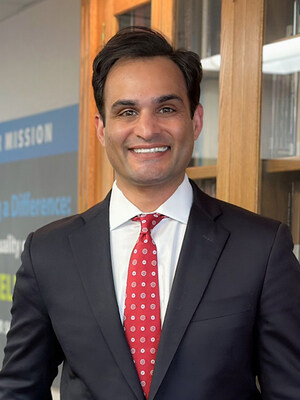
ARE DEI EFFORTS WORKING? VALIDATED TOOL HELPS EMPLOYERS FIND OUT
BLOOMINGTON, Ill., Feb. 21, 2023 /PRNewswire/ -- Programs to increase cultural understanding and decrease discrimination first appeared in corporate America in the 1970s. They have evolved into today's diversity, equity, and inclusion (DEI) efforts.
Have DEI programs succeeded?
Trainings, policies, and discussions have been counted as DEI achievements. These show outputs, not outcomes. Staff demographics have been used to gauge progress. They tell us only so much about workplace culture.
Bloomington, Illinois-based Chestnut Health Systems® (Chestnut) has developed a Workplace Inclusion Scale (WIS) to measure inclusiveness as a key part of cultural change. WIS has been validated using rigorous statistical analysis and has been published.
DEI matters to employers and to employees. Recent studies have shown that:
- Seventy-six percent of millennials say they would leave an employer in the absence of DEI initiatives
- The hiring of new chief diversity officers within S&P 500 companies nearly tripled in 16 months
- Sixty percent of employees expect CEOs to speak publicly about controversial social and political issues
2020 was a tipping point. Violence against people of color sparked protests. They sparked conversations about equity, fairness, and discrimination. Employees expected leaders to take a public stand. "Workers wanted organizations to respond to the violence, to deal with inequity in the workplace and to understand the mental health effects on employees of color as these horrific events took place," said Molly Robey, Ph.D., DEI officer at Chestnut.
"As leaders prioritize DEI, it is vital to back up good intentions with accountability," said Patricia A. Herlihy, Ph.D., RN, CEO of Rocky Mountain Research. "WIS provides organizations with data about where they are, how far they have come, and where they need to go."
Existing measures of workplace inclusion tend to be time-consuming, proprietary (for use only by the survey owner) and expensive. "At just eight questions, WIS can increase response rates," said David A. Sharar, Ph.D., chief executive officer of Chestnut Health Systems. "It can collect one-time data but is most useful for collecting data pre- and post- implementation of a DEI initiative."
WIS is publicly available, free, and requires only a simple license agreement. Find WIS at https://www.chestnut.org/workplace-inclusion-scale/. Professionals with questions about WIS may contact Patricia Herlihy: [email protected].
SOURCE Chestnut Health Systems







Share this article